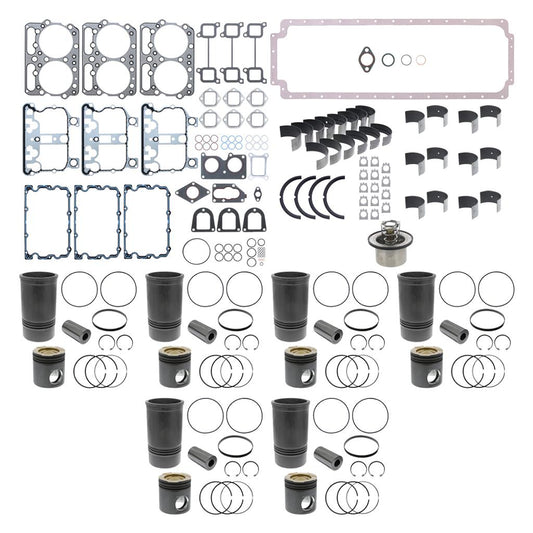5 Ways Fuel Contamination Causes Diesel Fuel Pump Failure (and How to Prevent It)
Fuel contamination is one of the most common—and costly—causes of diesel fuel pump failure. Contaminants in diesel fuel reduce performance, damage internal components, and lead to unexpected breakdowns. If you're running heavy-duty trucks, protecting your fuel system starts with understanding the threats.
1. Water in Diesel Fuel
Water enters fuel systems through condensation, bad storage practices, or during refueling in wet environments. When water gets into the fuel pump:
- It corrodes internal metal components
- Reduces lubricity and causes premature wear
- Disrupts fuel pressure, causing performance issues
Over time, water contamination leads to rust, seal failure, and pump breakdown.
2. Dirt, Rust, and Sediment
Diesel fuel can carry debris from old tanks and pipes. These solid contaminants:
- Clog filters and narrow fuel passages
- Score and abrade pump components
- Lead to injector and pump failure
Even small amounts of debris can damage precision parts in high-pressure fuel systems.
3. Microbial Growth (Diesel Bugs)
Bacteria and fungi thrive where water meets fuel, especially in warm, humid conditions. These microbes:
- Produce sludge that clogs filters
- Create acids that corrode fuel lines and pumps
- Can spread rapidly in underused tanks
Preventing microbial contamination is essential for stored diesel and seasonal equipment.
4. Contaminated or Low‑Quality Additives
Not all additives are created equal. Some contain moisture, metals, or poor blending agents that can:
- Degrade seals
- Plug filters
- Cause long-term chemical damage to pumps and injectors
Only use proven, name-brand additives designed for diesel systems. Learn more in our blog post: How To Clean Your Caterpillar Fuel Injectors.
5. Dirty Fuel Tanks
Fuel tanks can accumulate sludge, scale, and water. Drawing fuel from the tank bottom sends that debris into your system:
- Inspect tanks regularly
- Drain water traps and bottom sludge
- Clean stored fuel or polish tanks as needed
How to Prevent Fuel Pump Failure
Here’s how to protect your fuel system and prolong pump life:
- Use high-turnover fuel suppliers
- Add diesel stabilizers and biocides as needed
- Replace fuel filters on schedule—more often in dirty conditions
- Keep tanks sealed, clean, and dry
Fuel pumps aren’t cheap. Preventative maintenance is far more affordable than downtime and major repairs.
Need Parts? ATL Diesel Has You Covered
- Shop fuel pumps & kits – Remanufactured and new, including high-pressure options
- Detroit Diesel DD15/DD16 high-pressure pump – OEM quality reman
- Cummins N14 fuel pump – Brand-new replacement unit
- How to change a fuel filter (12.7 Detroit Diesel) – Step-by-step instructions
Need Help Finding the Right Pump or Filters?
Contact ATL Diesel for expert support and fast shipping.

